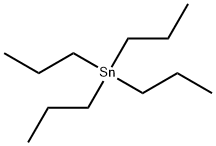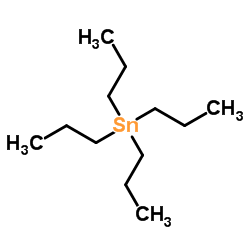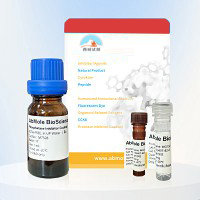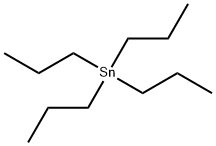四丙基锡,分析标准品,HPLC≥98.5%
产品编号:西域质检-TM12370| CAS NO:2176-98-9| 分子式:C12H28Sn| 分子量:291.061
本网站销售的所有产品仅用于工业应用或者科学研究等非医疗目的,不可用于人类或动物的临床诊断或者治疗,非药用,非食用,
四丙基锡
This certificate is designed in accordance with ISO 17034 and ISO Guide 31. This reference material (RM) was designed,produced and verified in accordance with ISO/IEC 17025, ISO 17034 and a registered quality management system ISO 9001.

The certified value(s) and uncertainty(ies) are determined in accordance with ISO 17034 with an 95% confidence level(k=2). Uncertainty is based on the Total Combined Uncertainty, including uncertainties of characterisation, homogeneity and stability testing. Stability values are based on real evidence opposed to simulation.
The balances used for gravimetric measurements are calibrated with weights traceable to the national standards. The calibration of the balances is verified annually by an external accredited calibration service. This analysis method has been verified using an approach consistent with ISO 17034:2016 & ISO 17025:2017.
| CERTIFICATE ON | QC SIGNATURE | |
| 2022-Aug-19 |

|
RM Release |
This RM is intended for use in a laboratory as a calibration and quality control standard or in method development for analytical techniques.
This reference material meets the specification stated in this certificate until the expiry date, provided it is stored unopened at the recommended temperature here in. If storage after opening is necessary, the RM should be tightly closed and kept from light and moisture.
Read Material Safety Data Sheet (MSDS) and understand any potential hazard(s) prior to the use of this product. All chemicals should be considered potentially hazardous in nature and should only be handled by qualified personnel using established good laboratory practices.
Random replicate samples of the final packaged RM have been analysed to prove homogeneity compliant with ISO 17034.
It is recommended to use 1 mg as the minimum sample size and if less material is used, to increase the certified uncertainty by a factor of two for half sample and four for a quarter of sample.Visit the support section of our website technology videos and frequently asked questions.
相关文档
化学品安全说明书(MSDS)
下载MSDS质检证书(COA)
相关产品
| 风险声明 (欧洲) | R23/24/25 |
|---|---|
| 安全声明 (欧洲) | 26-27-36/37/39 |
| 危险品运输编码 | UN 2788 |
| 海关编码 | 2931900090 |
|
Section 1: Product Identification Chemical Name:Tetra-n-propyltin, min. 97% CAS Registry Number:2176-98-9 Formula:Sn(C3H7)4 EINECS Number:218-536-0 Chemical Family:organotin compound Synonym:Tin, tetrapropyl-, Tetrapropylstannane
Section 2: Composition and Information on Ingredients IngredientCAS NumberPercentACGIH (TWA)OSHA (PEL) Title Compound2176-98-9100%0.1mg/m30.1mg/m3 Section 3: Hazards Identification Emergency Overview:Irritating to the respiratory tract, skin and eyes. May be harmful if swallowed. Primary Routes of Exposure:Ingestion, inhalation, skin, eyes Eye Contact:Causes severe irritation of the eyes. Causes slight to mild irritation of the skin. Prolonged contact may dry the skin and lead to rashes or more Skin Contact: severe irritation. Inhalation:Irritating to skin, eyes and respiratory tract. Delayed and permanent psycho-neurological disturbances; impairment of vision, unsteadiness, nausea and Ingestion: vomiting. Irritating to skin, eyes and mucous membranes. Ingestion of certain organotin compounds may cause delayed Acute Health Affects: poisoning (4 days) with cerebral edema causing damage to the central nervous system. Repeated exposure to certain organic tin compounds may cause problems with vision, skin, respiratory Chronic Health Affects: system, central nervous system, liver, kidneys, urinary tract, and blood. NTP:No IARC:No OSHA:No SECTION 4: First Aid Measures Immediately flush the eyes with copious amounts of water for at least 10-15 minutes. A victim may need Eye Exposure: assistance in keeping their eye lids open. Get immediate medical attention. Wash the affected area with water. Remove contaminated clothes if necessary. Seek medical assistance if Skin Exposure: irritation persists. Remove the victim to fresh air. Closely monitor the victim for signs of respiratory problems, such as difficulty Inhalation: in breathing, coughing, wheezing, or pain. In such cases seek immediate medical assistance. Seek medical attention immediately. Keep the victim calm. Give the victim water (only if conscious). Induce Ingestion: vomiting only if directed by medical personnel. SECTION 5: Fire Fighting Measures Flash Point:no data Autoignition Temperature:no data Explosion Limits:no data Extinguishing Medium:carbon dioxide, foam or dry powder Fire fighters should be equipped with a NIOSH approved positive pressure self-contained breathing apparatus Special Fire Fighting Procedures: and full protective clothing. Hazardous Combustion andcarbon monoxide, carbon dioxide, soot, organic fumes and tin compounds. Decomposion Products: Unusual Fire or Explosion Hazards: No unusual fire or explosion hazards. SECTION 6: Accidental Release Measures Small spills can be mixed with vermiculite, ground limestone, sodium carbonate or other suitable Spill and Leak Procedures: noncombustible adsorbent and swept up. SECTION 7: Handling and Storage Handling and Storage:Store in a cool, dry, well ventilated area away from heat and direct sunlight. Keep containers tightly sealed. SECTION 8: Exposure Controls and Personal Protection Eye Protection:Always wear approved safety glasses when handling a chemical substance in the laboratory. Skin Protection:Wear protective clothing and gloves. Consult with glove manufacturer to determine the proper type of glove. Ventilation:Work with this product in a well-ventilated area, preferably a fume hood. If ventilation is not available a respirator should be worn. The use of respirators requires a Respirator Respirator: Protection Program to be in compliance with 29 CFR 1910.134. Ventilation:Work with this product in a well-ventilated area, preferably a fume hood. Additional Protection:No additional protection required. SECTION 9: Physical and Chemical Properties Color and Form:colorless liq. Molecular Weight:291.05 Melting Point:no data Boiling Point:222°C Vapor Pressure:no data Specific Gravity:1.1065(20°) Odor:not determined Solubility in Water:insoluble SECTION 10: Stability and Reactivity Stability:air and moisture stable Hazardous Polymerization:no hazardous polymerization Conditions to Avoid:none Incompatibility:strong oxidizing agents and halogens Decomposition Products:carbon monoxide, carbon dioxide, tin oxide, and organic fumes. SECTION 11: Toxicological Information RTECS Data:Parenteral (mouse); LDLo: 73 mg/kg. Carcinogenic Effects:No data available Mutagenic Effects:No data available Tetratogenic Effects:No data available SECTION 12: Ecological Information Ecological Information:No information available SECTION 13: Disposal Considerations Disposal:Dispose of according to federal, state, and local regulations. SECTION 14: Transportation Shipping Name (CFR):Non-hazardous Hazard Class (CFR):NA Additional Hazard Class (CFR):NA Packaging Group (CFR):NA UN ID Number (CFR):NA Shipping Name (IATA):Non-hazardous Hazard Class (IATA):NA Additional Hazard Class (IATA):NA Packaging Group (IATA):NA UN ID Number (IATA):NA SECTION 15: Regulatory Information TSCA:Not listed in the TSCA inventory. SARA (Title 313):Title compound not listed. Second Ingredient:none SECTION 16 - ADDITIONAL INFORMATION N/A |










 浙公网安备 33010802013016号
浙公网安备 33010802013016号